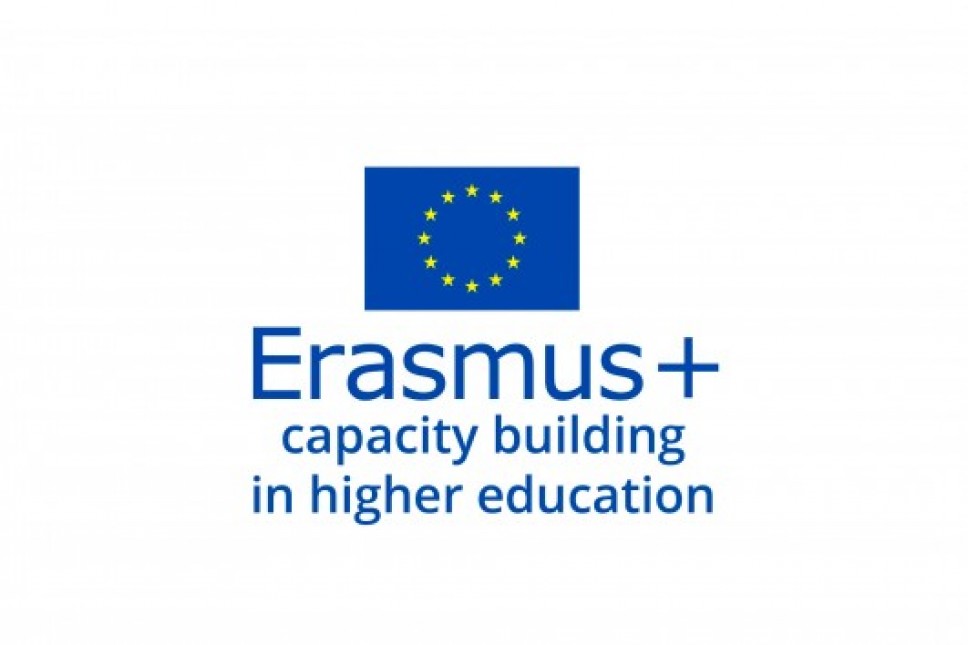Erasmus+ Capacity Building in Bigher Bducation

In Erasmus+ program, the CBHE action is composed of 3 specific Strands:
- Strand 1: Fostering access to cooperation in higher education
- Strand 2: Partnerships for transformation in higher education
- Strand 3: Structural reform projects
CBHE projects should contribute to the following overarching priorities of the EC:
- green deal
- digital transformation
- integration of migrants
- governance, peace, security and human development
- sustainable growth and jobs
Who can apply?
For Strands 1&2
In order to be eligible, applicants (beneficiaries and affiliated entities, if applicable) must be public or private legal entities falling under the following categories: higher education institutions (HEIs) or organisations of HEIs; organisations or institutions active in the labour market or in the fields of education, training and youth.
These entities must be established in one of the eligible countries: an EU Member State, a third country associated to the Programme, a third country not associated to the Programme from an eligible region.
Among the entities described above, only higher education institutions (HEIs) or organisations of HEIs can be coordinators of a CBHE application.
The following minimum consortium composition must be respected:
National projects (open only for Regions 2, 3, 5a, 6, 7a, 8a, 9):
- at least 2 EU Member States or third countries associated to the Programme (each of these countries must involve at least 1 HEI).
- only 1 eligible third country not associated to the Programme (involving at least 2 HEIs).
The number of participating organisations from third countries not associated to the Programme must be equal to or higher than the number of participating organisations from EU Member States and third countries associated to the Programme.
Multi-country projects (open for all eligible regions):
- at least 2 EU Member States or third countries associated to the Programme (each of these countries must involve at least 1 HEI).
- at least 2 eligible third countries not associated to the Programme. Each of these countries must involve at least 2 HEIs. Third countries not associated to the programme can be from the same Region (regional projects) or from different Regions (cross-regional projects);
The number of participating organisations from third countries not associated to the Programme must be equal to or higher than the number of participating organisations from EU Member States and third countries associated to the Programme.
Exception: In third countries not associated to the Programme where the number of HEIs recognised by the competent national authorities is lower than 5 in the whole country, or in cases where one single institution represents more than 50% of the overall student population of the country, applications counting only one HEI from those countries will be accepted.
Duration of the project
Projects should normally last 24 or 36 months (extensions are possible, if duly justified and through an amendment).
The following minimum consortium composition must be respected for Strand 3:
- at least 2 EU Member States or third countries associated to the Programme (each of these countries must involve at least 1 HEI).
- at least 1 eligible third country not associated to the Programme (each participating country must involve at least 2 HEIs and the national competent authority (e.g. Ministry) responsible for higher education in the country.
The number of participating organisations from third countries not associated to the Programme must be equal to or higher than the number of participating organisations from EU Member States and third countries associated to the Programme.
Duration of the project for Strand 3:
Projects should normally last 36 or 48 months (extensions are possible, if duly justified and through an amendment).
Where to apply?
To the European Education and Culture Executive Agency (EACEA) through the Electronic Submission System Funding & Tender Opportunities Portal (FTOP).
Call ID: ERASMUS-EDU-2024-CBHE
Topic ID: ERASMUS-EDU-2024-CBHE-STRAND-1
Call ID: ERASMUS-EDU-2024-CBHE
Topic ID: ERASMUS-EDU-2024-CBHE-STRAND-2
Call ID: ERASMUS-EDU-2024-CBHE
Topic ID: ERASMUS-EDU-2024-CBHE-STRAND-3
When to apply?
Applicants have to submit their grant application by 8 February at 17:00:00 (Brussels time).
What are the funding rules?
This action follows a lump-sum funding model. The amount of the single lump-sum contribution will be determined for each grant based on the estimated budget of the action proposed by the applicant. The granting authority will fix the lump sum of each grant based on the proposal, evaluation result, the funding rate of 90% and the maximum grant amount.
The EU grant per project is as follows:
- For Strand 1 - Fostering access to cooperation in higher education: Between EUR 200,000 and EUR 400,000 per project
- For Strand 2 - Partnerships for transformation in higher education: Between EUR 400,000 and EUR 800,000 per project
- For Strand 3 - Structural Reform projects: Between EUR 600,000 and EUR 1,000,000 per project.
The costs for equipment should present a maximum of 35% of the awarded EU grant and the EU grant will cover 100% of the eligible costs.
The subcontracting should represent a maximum of 10% of the awarded EU grant.
Financial support to third parties is not allowed.
More details on the model grant agreement are available on the Funding and Tender Opportunities Portal (FTOP).
You can find the call for proposals here.
The Program Guide for Erasmus+ CBHE for 2024 can be found here.

